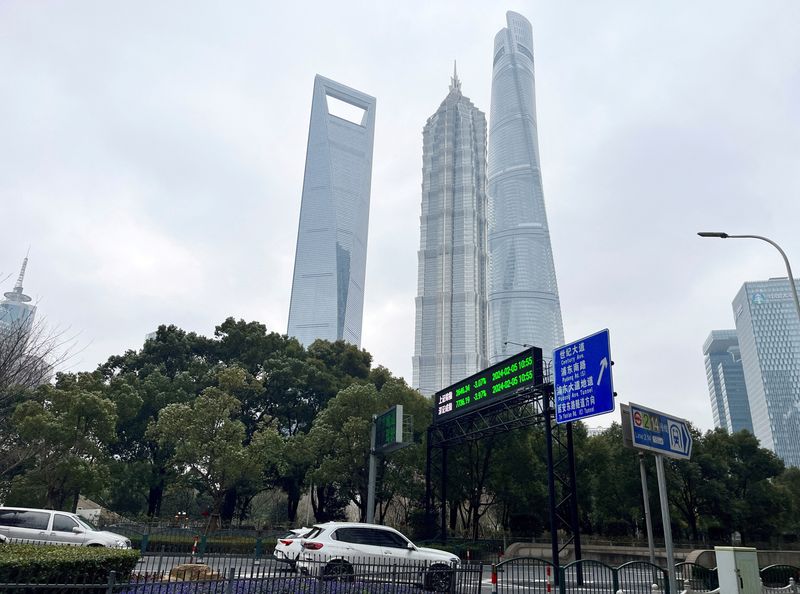By Summer Zhen and Samuel Shen
HONG KONG/SHANGHAI (Reuters) - Chinese money is pouring into funds invested in offshore assets at breakneck speed, butting up against outbound investment limits and complicating Beijing's efforts to revive domestic markets and stabilise the yuan.
The rush to invest offshore reflects low confidence at home and is evident in sales of funds issued under the Qualified Domestic Institutional Investor (QDII) programme, a key outbound investment channel that allows Chinese to buy overseas securities under Beijing's strict capital controls.
QDII fund units sold in January jumped 50% year-on-year to a record high while those of domestic equity mutual funds dropped 35%, data from the Asset Management Association of China shows. Assets under management for QDII funds were up 19% year-on-year.
Exchange-traded funds (ETFs) tracking Nikkei 225 and Nasdaq-listed stocks flagged price premium risks in recent weeks as buyers bid well above the value of the underlying assets to grab a share.
The outbound scramble illustrates the pressure on China's capital account and currency and the challenges in rebuilding domestic investors confidence in their home market.
Chinese stocks are wallowing near a five-year nadir while yields on the country's 30-year treasury bonds have plumbed record lows.
"We feel a pressing need from our wealthy clients to diversify asset allocation," said Le Rong, founding partner of Shanghai-based FR Harvest Asset Management, which helps clients invest via QDII. "After 20 years of high growth and high returns, the Chinese economy faces a slowdown in the foreseeable future," he said.
Managers are also struggling to keep up and are turning away prospective investors or searching for partners and other ways around limits.
The QDII scheme is capped by a quota, or limit on outbound investment, set by China's State Administration of Foreign Exchange (SAFE).
No new quotas have been granted since July, leaving the cumulative approved quota at $165.5 billion, according to official data.
Last week, ChinaAMC capped investors daily subscription into its Huaxia Global Technology Pioneer Hybrid Securities Investment Fund, which lists U.S. tech giants among its top holdings, at 2,000 yuan ($277.84). Manulife Fund Management has set a daily maximum purchase of 300 yuan for its India Opportunity Stock Investment Fund.
Another QDII product sold in China, which is putting money into a Blackrock (NYSE:BLK) UK hedge fund, has seen a fivefold surge in fundraising this year, drawing nearly $12 million against the $2.1 million it raised in 2023, according to two sources familiar with the matter but not authorised to speak publicly.
"Local investors’ demand for QDII funds has gone insane this year," said one of the sources.
The product paused new subscriptions in March, said China Resources Trust, which jointly launched the product with Blackrock. A Blackrock spokesperson did not respond to requests for comment.
Standard Chartered (OTC:SCBFF) also recently stopped its Chinese clients from making new investments in QDII products for "commercial reasons".

Zheng Peng, a QDII fund portfolio Manager at China Asset Management Co expects the trend to persist, with a gap of almost 190 basis points between 10-year U.S. and Chinese government bond yields driving current demand.
($1 = 7.1985 Chinese yuan)